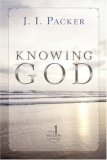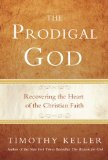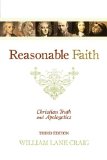I first heard of David Bentley Hart’s book, Atheist Delusions: The Christian Revolution and its Fashionable Enemies, while listening to an interview of Hart by the excellent Ken Meyers. I ordered the book the next day, and even reflected on some of my first (giddy) impressions here. In the introduction, the forthright Hart describes the pages to follow as a “historical essay,” purposed to highlight “the effect of Christianity upon the development of Western civilization” (p. ix).
The book is largely a response to the work of popular atheists such as Christopher Hitchens, Richard Dawkins, Sam Harris and Daniel Dennet. Hart states that a point by point refutation of of the collective work of these men is more or less futile, since they make no good arguments, if they argue anything at all. He does not critique their atheism; what he critiques (decimates, actually) is the self-serving history that these men and their acolytes have created to bolster their anti-Christian agenda. As Christopher Hitchens puts it in the sub-title of his book, God is not Great, religion “poisons everything.” That is, Christianity (more broadly, religion) is by its nature cruel, barbarous and oppressive. Says Hart,
Many of today’s most obstreperous critics of Christianity know nothing more of Christendom’s two millennia than a few childish images of bloodthirsty crusaders and sadistic inquisitors, a few damning facts, and a great number of even more damning legends (p.17).
The bulk of the text, then, goes on to show how these celebrity atheists have gotten all of the details wrong, from their misunderstanding of Galileo’s conflict with the Catholic Church in the early 17th century, to their convenient forgetfulness of the atrocities wrought by non-Christian dictators and leaders over the past few centuries:
Can one really believe – as the New Atheists seem to do- – that secular reason, if finally allowed to move forward, free of the constraining hand of archaic faith, will naturally make society more just, more humane, and more rational than it has been in the past? What evidence supports such an expectation? At the end of the twentieth century – the century when secularization became an explicit political and cultural project throughout the world – the forces of progressive ideology could boast an unprecedentedly vast collection of corpses, but not much in the way of new moral concepts (p. 222).
Hart’s book is immensely broad in scope, yet decidedly focussed in the points he refutes. Positively, he notes that Christianity so revolutionized Western thought that we (atheists included) now take those ideals – ideals such as loving others, human equality, social justice – for granted. For example, we can no longer look upon human suffering with indifference (and without violating our consciences) precisely because of how Christianity changed the West. The moral ideals that comprise the battle cry of the popular atheists do not have their origins in pre-Christian pagan culture, or the Enlightenment, or the 1960’s, but in Christianity.
Hart’s tone, as I’ve commented before, is calm and mature. He is the erudite professor scolding the cocky, underachieving high school students who think they’re going to change the world with half-baked, unoriginal arguments and sanctimonious vitriol. While no easy read, Atheist Delusions is a delight, and a powerful apologetic to some of Christianity’s best known detractors. The research-minded reader may be let down by a lack of footnotes, and I myself was disappointed with some of Hart’s pessimistic conclusions, but these are easily overlooked. For anyone wishing to engage with those influenced by the likes of Dawkins, or perhaps those who would like more to say (other than “sorry”) to non-believers when they blurt out “What about the crusades?” Atheist Delusions is a must read.










